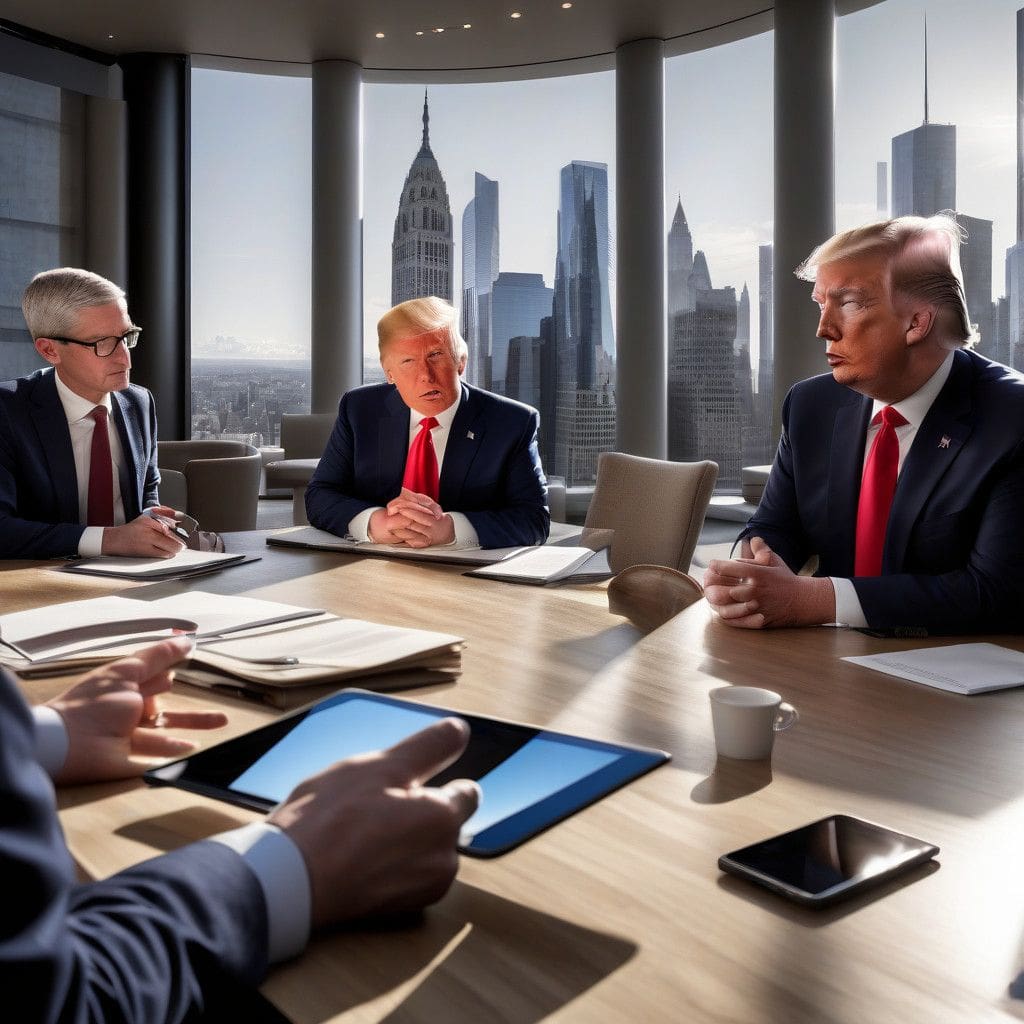In a significant conversation highlighting the ongoing tensions between American tech giants and European regulatory frameworks, former President Donald Trump recently spoke with Tim Cook, the CEO of Apple. The discussion focused on substantial financial penalties imposed by the European Union on the tech powerhouse, with Trump relaying claims that Cook detailed a staggering $15 billion fine, alongside an additional $2 billion penalty. However, it’s important to note that Apple has not officially confirmed the specifics of this dialogue.
The context surrounding these fines is critical to understanding the challenges facing Apple and other major tech firms in Europe. The EU has ramped up its scrutiny of big tech companies in an effort to cultivate a fair competitive landscape for smaller businesses. This scrutiny was further intensified with Apple’s recent legal struggles, including a ruling that mandated the company to pay approximately $14 billion in back taxes to Ireland. Subsequently, the tech giant faced a $2 billion antitrust fine for practices believed to stifle competition within the music streaming arena via its App Store.
During the podcast appearance with Patrick Bet-David, Trump made his position clear, expressing unwavering support for American companies. He stated, “Tim, I got to get elected first. But I’m not going to let them take advantage of our companies.” This remark underscores his commitment to advocating for the interests of U.S.-based corporations, a message he has consistently communicated throughout his candidacy.
Trump’s stance can also be viewed within the larger narrative of increasing geopolitical tensions, particularly regarding trade and regulatory practices. The tech sector has emerged as a battleground where national interests and corporate regulations often collide. The EU’s rigorous enforcement of data protections and competition laws emphasizes their determination to challenge the dominance of tech giants, often at the expense of American companies.
The implications of Trump’s discussions with Cook could extend beyond just fines. With the presidential election on November 5 fast approaching, Trump’s comments are a strategic move to galvanize support among voters who value the robustness of the American economy and the protection of domestic industries. The contrast between Trump’s business-centric approach and his opponent Democrat Kamala Harris’s policies could also resonate with potential voters who perceive the EU’s actions as adversarial to American entrepreneurial spirit.
Both candidates are likely to address the broader implications of international regulations during their campaigns, focusing on how they intend to safeguard American businesses. As tech companies increasingly find themselves navigating the complex maze of international laws, the actions of influential figures like Trump can significantly impact their reputation and operational strategies.
As the conversation between Trump and Cook illustrates, the intersection of technology, politics, and competition law will remain a crucial area of focus in the coming months. Apple’s ongoing battles with European regulators not only highlight the challenges facing one of the world’s largest corporations, but also paint a broader picture of the regulatory landscape for American tech firms operating abroad.
The outcome of the upcoming election may determine how aggressively these conversations are pursued at the highest levels of government. Will the next administration take a hard stance against EU regulations, or will they advocate for a more collaborative approach? It remains to be seen how this dynamic will evolve.
In conclusion, the dialogue between Trump and Cook encapsulates the complexities of transatlantic relations in the tech industry, blending concerns over corporate governance with national interests. Whether Trump’s assertions will bear political fruit in the forthcoming election, or merely serve as rhetoric to attract voters, is a matter that will unfold in the coming weeks.












